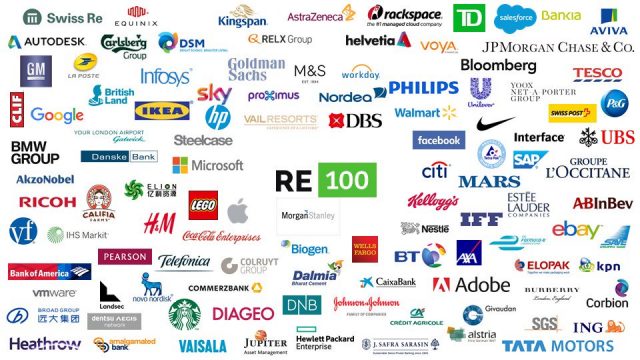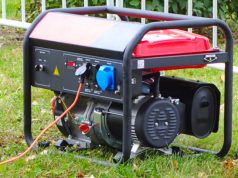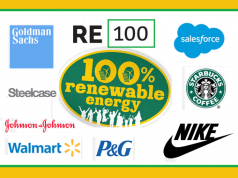Why Nigeria Makes Sense for RE100 Companies (Part I)
*Ayodele Babalola
Introduction
Welcome to the Climate Decade! 2020 marks the beginning of ten years left to halve greenhouse gas (GHG) emissions and put the world on track to reach net zero by 2050. The UN Environment Programme (UNEP) warned in its 2019 Emissions Gap Report that GHG emissions reductions of 7.6 percent per year from 2020 to 2030 are needed to meet the internationally agreed goal of 1.5 degrees Celsius increase in temperatures over pre-industrial level. The need to scale up efforts aimed at emissions reduction was re-emphasized at the COP25. Companies in the commercial and industrial sector account for approximately two thirds of the world’s end-of-use of electricity. Switching this demand to renewables is transforming the global energy market and accelerating the transition to a clean economy.
RE 100 Companies
100% renewables means 95% less water consumption for conventional power generation. It also means drastic emissions reduction. RE 100 is a global corporate leadership initiative led by the Climate Group in partnership with Carbon Disclosure Project (CDP) which brings together influential businesses committed to 100% renewable electricity. The RE 100 seeks to increase corporate demand for and supply of renewable energy, and the acceleration of change towards zero carbon grids at a global scale. RE 100 companies all have goals to source 100% of their global electricity consumption from renewable sources by a specified year (mostly before 2050) while also disclosing their electricity data annually. The CDP takes on global environmental disclosure by supporting thousands of companies, cities, states and regions to measure and manage their risks and opportunities on climate change, water security and deforestation.
The Climate Group’s Under2 Coalition is an inter-subnational network that brings together 170 governments, mostly sub-nationals, spanning six continents and 33 countries committing to reduce their Green House Gas (GHG) emissions towards net-zero by 2050.
RE 100 companies have global operations in several industries like retail, insurance, assets management, sports, telecommunications, automobiles, brewing, software, professional services, real estate, banking, healthcare, e-commerce, biopharmaceutical, fashion, biotechnology, grocery, construction, cement, food, technology, beverage and alcohol, recycling, data e.t.c Some RE 100 companies have already met their Renewable Energy Targets (RETs) while others are taking steps towards meeting theirs.
A claim by a company that it uses 100% renewables does not always mean that all energy consumed is generated solely from renewable sources. It could also mean that they procured enough renewable energy on an annual basis to offset 100 per cent of consumption like the Ingka Group situation.
Some RE 100 companies and their Renewable Energy/Electricity Targets (RETs)
Companies can obtain renewable energy through production or purchase. Production can be onsite (solar panels) or offsite (wind farms) while purchase could be made from utilities or generation companies.
Here are some of the RE100 companies and their RETs. Autodesk achieved 100% renewable power since 2016, four years ahead of schedule; Ingka Group (formerly IKEA Group) committed to generate as much energy as it consumes by 2020 but was reported to have exceeded same by the end of 2019. Ingka also has a RET of 100% by 2025; Tesco has a RET of 100% by 2030; Bank of America has a RET of 100% by 2020; Slaughter and May, a multinational law firm has a global RET of 100% by 2040; Atlassian has a global RET of 100% by 2025; Procter & Gamble Barclays bank has a RET of 90% by 2025 and 100% by 2030; Bloomberg LP has a RET of 100% 2025; Sony Corporation has a global RET of 100% by 2040; PwC has a global RET of 100% by 2050 with an interim of RET of 70% by 2022; Nike has a RET of 100%; New Balance has an interim RET of 75% by 2020 and ultimately 100% by 2025; and Schneider Electric has a global RET of 100% by 2030. Others can be found here.
Some RE Companies with investments in Nigeria
ABInBev is a global brewer with an RET of 100% by 2025. ABInBev has majority shares (75.1%) in International breweries: a merger/combination of three Nigerian companies namely – International Breweries Plc, Intafact Beverages and Pabod Breweries Limited. ABInBev holds this majority through its subsidiaries – SAB Miller Nigeria Holdings BV (47.4%) and Brauhaase International Management GMBH (27.7%). It was recently reported that AB InBev will make an additional N123 billion investment in International Breweries through a rights issue – selling shares to shareholders (ABInBev).
PwC is a professional services firm with global RET of 100% by 2050, and interim RET of 70% by 2022. It has operations in Nigeria since 1953 through predecessor firms – Coopers & Lybrand and Price Waterhouse. PwC has offices in Lagos, Abuja and Port Harcourt, over 1000 staff and 31 resident partners.
Jinko Solar has a global RET of 100% by 2025 with an interim RET of 70% by 2023. Jinko has a global sales team in Nigeria while its subsidiaries and manufacturing centres are in other parts of the world.
AXA, a French insurance company has a RET of 100% by 2025. AXA Mansard Insurance plc is a member of the AXA Group, the worldwide leader in insurance and asset management with 166,000 employees serving 107 million clients in 64 countries. AXA Mansard Insurance plc was incorporated in 1989 as a private limited liability company and is registered as a composite company with the National Insurance Commission of Nigeria (NAICOM).
Unilever has an interim RET of 100% by 2020 for electricity purchased from the grid and ultimately a RET of 100% by 2030. It is reported to have achieved 100% renewable in Europe and the US. Unilever Nigeria Plc is a publicly listed company and a subsidiary of Unilever Overseas Holding B.V.
Guinness Nigeria Plc acquired the exclusive rights to import, market, distribute, sell and produce (some) in Nigeria the International Premium Spirit brands of Diageo plc (“Diageo”), its parent company with effect from 1st January 2016.
Continued in Part II
*Ayodele Babalola is qualified to practice law in Nigeria and has an LL.M (Master of Laws) with specialization in Environmental & Energy Law and Public Law from the University of California, Berkeley. He is the Founding Partner, AOB Willows LP where he leads the Dispute Resolution, Environment, Elections and Sports Practice




